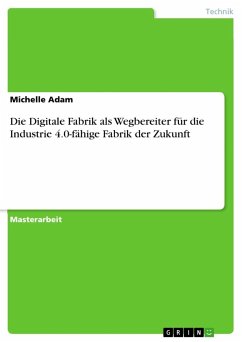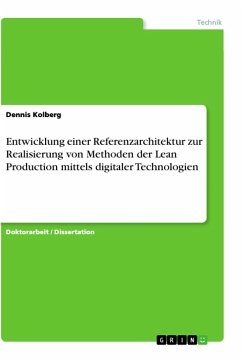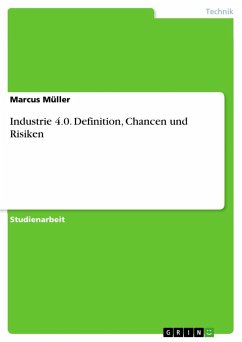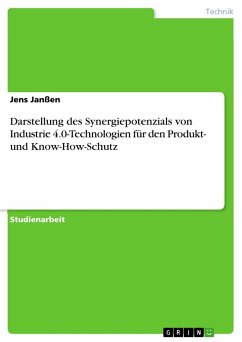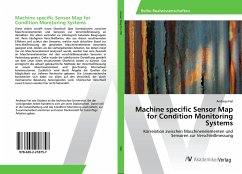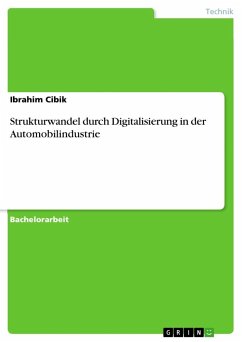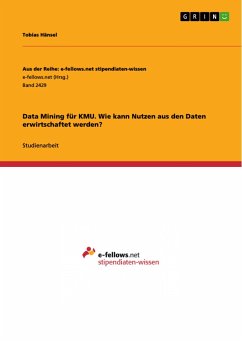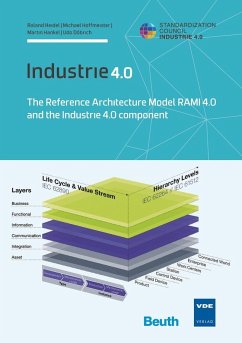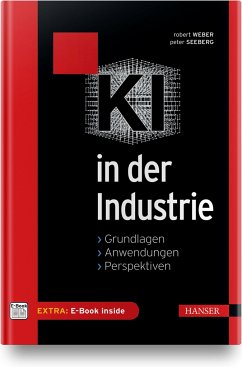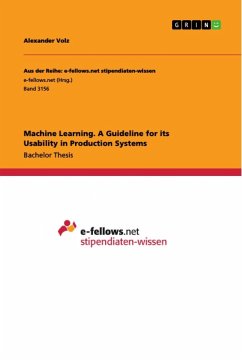
Machine Learning. A Guideline for its Usability in Production Systems

PAYBACK Punkte
0 °P sammeln!
Bachelor Thesis from the year 2017 in the subject Engineering - Mechanical Engineering, grade: 1,3, RWTH Aachen University, language: English, abstract: This thesis provides an especially designed overview for the needs of decision makers in the production industry on the field of machine learning. By concerning economic and technological factors, as well as the individual challenges for companies, the goal of this thesis is to serve as a guideline for the usage of machine learning in production systems.After the revolutionary change caused by the introduction of the steam engine, the producti...
Bachelor Thesis from the year 2017 in the subject Engineering - Mechanical Engineering, grade: 1,3, RWTH Aachen University, language: English, abstract: This thesis provides an especially designed overview for the needs of decision makers in the production industry on the field of machine learning. By concerning economic and technological factors, as well as the individual challenges for companies, the goal of this thesis is to serve as a guideline for the usage of machine learning in production systems.After the revolutionary change caused by the introduction of the steam engine, the production line, electronics and IT, into the manufacturing industry, a new disrupting change is expected. Nowadays the rapidly increasing digitalization of the economy leads to the fourth industrial revolution. This global phenomenon is called 'Industrie 4.0' (GER) or 'Smart Factory' (US), and it combines production technology with information and communication technology. Especially, data based optimization in production is one of the predominant goals of Industrie 4.0. For the automatized analysis of large amounts of data, machine learning is an effective instrument and therefore a central element in Industrie 4.0.Recent progress in machine learning has been driven by the development of new learning algorithms and by the increasing availability of data and low-cost computation power. For many applications - from computer vision to adaptive robots - it was very difficult to devise deterministic rules. However, for these applications, it is possible to collect data, and now the idea is to use algorithms that learn from data, instead of being manually programmed. Thus, machine learning has the potential to transform data into valuable knowledge for decision making, while making improvements possible to the production system, with approaches such as predictive maintenance. The transfer of machine learning from the lab to the 'real world' leads to an increased interest in learning techniques, demanding further effort in explaining, on how machine learning works, and what it can be used for in other disciplines.However, the entry barrier to the diverse field of machine learning is high. With many different algorithms, theories and methods, it is hard to oversee, and therefore its influence remains limited. In addition, a recent study states that about 47% of jobs in the US are at high risk of computerization within the next decades. Therefore, employees feel insecure, and demand answers on what effect machine learning will have on their future role in the factory.





